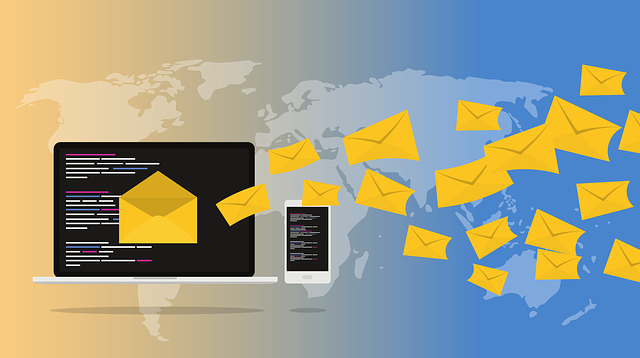
Non-profit organizations worldwide are increasingly navigating the digital landscape, where data integrity and privacy are paramount. In an era where cyber threats loom large, Confidential Computing emerges as a beacon of security, offering a discreet online experience for sensitive operations, including fundraising and data management. This article delves into the transformative impact of Confidential Computing on non-profit sectors globally. We will explore its foundational role in safeguarding non-profit data, discuss its integral function within global operations, and outline practical strategies for its implementation. With a focus on enhancing privacy and security, Confidential Computing stands as a critical ally in the quest to maintain donor trust and uphold the integrity of non-profit endeavors.
- Understanding Confidential Computing: A Shield for Non-Profit Data Integrity
- The Role of Confidential Computing in Non-Profit Operations and Fundraising
- Implementing Confidential Computing Solutions for Non-Profit Global Reach
- Best Practices for Non-Profits to Enhance Privacy and Security with Confidential Computing
Understanding Confidential Computing: A Shield for Non-Profit Data Integrity

In an era where data breaches and cyber threats are becoming increasingly sophisticated, non-profit organizations worldwide are seeking robust security solutions to protect their sensitive information. Confidential Computing emerges as a pivotal technology in this domain, offering a shield for maintaining data integrity. This paradigm ensures that data processed by applications remains confidential and protected both in use and at rest, even as it is accessed and processed by authorized users and systems. It encrypts data dynamically during computation, rendering any data leaks through software vulnerabilities or insider threats nearly impossible. For non-profits dealing with donor information, financial records, and proprietary research, the assurance of discreet data handling is not just a matter of compliance but a cornerstone of maintaining trust and credibility.
Moreover, as non-profit organizations increasingly rely on cloud services and online platforms to reach a broader audience and optimize operations, Confidential Computing provides a secure foundation for these activities. It guarantees that the discreet online experience for luxury travelers, which non-profits aim to offer, is not compromised by security vulnerabilities. By adopting Confidential Computing, non-profit organizations can ensure that their data remains untouched and unobserved during processing, thus upholding the integrity and confidentiality of their operations. This commitment to data protection allows these entities to focus on their core missions without the constant fear of data misuse or exposure.
The Role of Confidential Computing in Non-Profit Operations and Fundraising

Confidential computing plays a pivotal role in safeguarding sensitive data, which is particularly crucial for non-profit organizations operating in diverse geographical and regulatory landscapes. By providing robust encryption of data both in transit and at rest, confidential computing ensures that donor information, financial records, and proprietary research remain private and secure from unauthorized access. This is especially pertinent for non-profits managing funds raised through philanthropic efforts or engaging in fundraising campaigns where transparency and trust are paramount. The adoption of confidential computing allows these organizations to offer a discreet online experience for donors, which is essential for maintaining the integrity of their operations and fostering a culture of trust. This is particularly valuable for luxury travelers who expect a high degree of privacy and security when making contributions or sharing personal details as part of their philanthropic endeavors. The ability to process and store data confidentially also enables non-profits to leverage advanced analytics and machine learning tools without exposing sensitive information, thereby enhancing their decision-making processes and strategic planning for both operations and fundraising efforts.
Implementing Confidential Computing Solutions for Non-Profit Global Reach

Non-profit organizations worldwide, in their quest to safeguard sensitive data and maintain donor trust, are increasingly adopting confidential computing solutions. These solutions offer a discreet online experience for luxury travelers and donors alike, ensuring that personal information and financial transactions remain private and secure across the global reach of these organizations. Confidential computing enables the encryption of data both in use and at rest, which is critical when handling donor information and managing contributions across different jurisdictions with varying data protection regulations. By implementing such robust security measures, non-profits can protect against unauthorized access, data breaches, and other cyber threats, thereby maintaining the integrity and confidentiality of their operations. This is particularly important for organizations that operate in regions with higher risks of cyber attacks or where donor privacy must be strictly upheld. The adoption of these solutions not only safeguards the organization’s operations but also enhances the confidence of its stakeholders, ensuring that their work can continue without compromising the sensitive data they handle. As a result, non-profits can focus on their mission-critical activities, knowing that their digital infrastructure is fortified against modern cyber threats. The implementation of confidential computing thus becomes a cornerstone in the global strategy for non-profit organizations to protect their data assets and maintain a discreet online experience for all users engaging with their services.
Best Practices for Non-Profits to Enhance Privacy and Security with Confidential Computing

Non-profit organizations worldwide are increasingly leveraging confidential computing to safeguard sensitive data, particularly in areas demanding the highest levels of privacy, such as donor information and personal data of those they serve. To enhance privacy and security with confidential computing, it is imperative for non-profits to implement best practices tailored to their operational environment. One key practice involves adopting end-to-end encryption standards that ensure data remains discreet throughout its lifecycle, from collection to processing to storage. This approach is particularly beneficial for non-profits engaging in luxury travel services, where clients expect a high degree of confidentiality and data protection.
Furthermore, organizations should regularly audit their systems and update their confidential computing frameworks to address emerging threats and vulnerabilities. Engaging with cybersecurity experts to conduct periodic assessments can help identify potential security gaps. Additionally, non-profits must educate their staff on the importance of privacy and secure data handling practices, ensuring that every team member understands the role they play in maintaining a discreet online experience for luxury travelers. By combining robust encryption technologies with ongoing security evaluations and informed personnel, non-profit organizations can significantly enhance the privacy and security of their operations, fostering trust among donors and the communities they serve.







